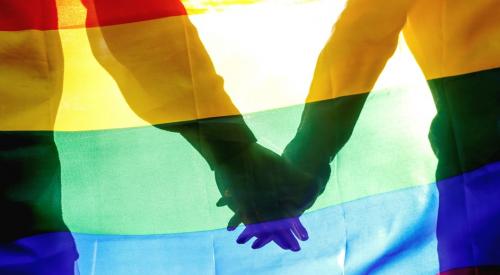According to WHO, Intimate Partner Violence (IPV) refers to behaviour within an intimate relationship that causes physical, sexual or psychological harm, including acts of physical aggression, sexual coercion, psychological abuse and controlling behaviours. This definition covers violence by both current and former spouses and partners.
IPV which can occur in both heterosexual and same-sex relationships, is a global public health concern with many countries reporting a dramatic increase in domestic violence due to the lockdown, stay at home orders, and other actions being taken to slow the spread of COVID-19. Various countries have been taking drastic actions to provide care and support for survivors due to the rise in domestic violence that has been reported at this time.
Unfortunately, victims of IPV in same-sex relationships are stuck with their abusers because IPV is discussed in the context of heteronormativity, and even though it has multiple adverse effects on all victims, statistics and initiatives to address IPV do not take the violence ins same-sex relationships into consideration. This lack of representation is fueled by homophobia, transphobia and biphobia and doesn’t allow space for conversations and solutions.
Abusers silence their victims by capitalizing on the negative social and religious perceptions surrounding homosexuality in Nigeria. They threaten individuals with various abuses including blackmail, outing victims at their place of work, their family members and loved one, or using revenge porn on social media. Some have also been documented withholding access to hormones of a transitioning partner because their victims are powerless in the situation. These feelings of fear and powerlessness lead to underreporting of abuse and causes victims to experience the “double closet” phenomenon, which is the fear of accessing health care facilities, the criminal justice system or other initiatives for fear of being outed.
Being in a second closet DURING A PANDEMIC does huge harm to both physical and psychological health of victims. They have to deal with the anxiety stemming from the pandemic as well as trauma from the abuse. This could lead to increased substance abuse as a coping mechanism.
Some are at further risk for because when abuse becomes unbearable, the available option but to leave for the streets which makes them unable to self-isolate and exposes them to homelessness.
On this day of International day against homophobia, biphobia, and transphobia (IDAHOBIT), it is important for us to break the silence surrounding abuse in same-sex relationships, and to clearly state the importance of mainstreaming these issues. Everyone needs to call for the decriminalization of the Same-Sex Marriage Prohibition Act (SSMPA) that legitimizes discrimination against these minority groups. They are citizens of society deserving of respect and dignity as everyone else and true equality does not come by excluding anyone.
Written by Marian Nwaokolo
Programme Officer, Gender and Diversity
The Initiative for Equal Rights (TIERs)

